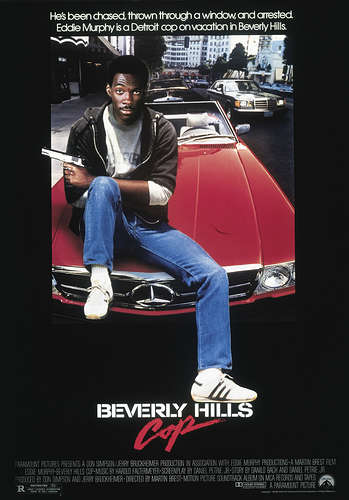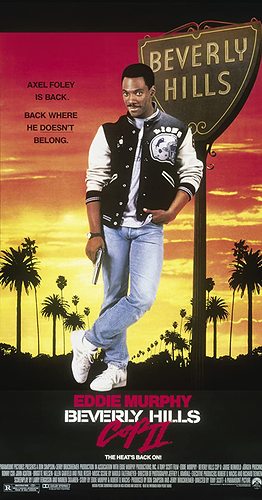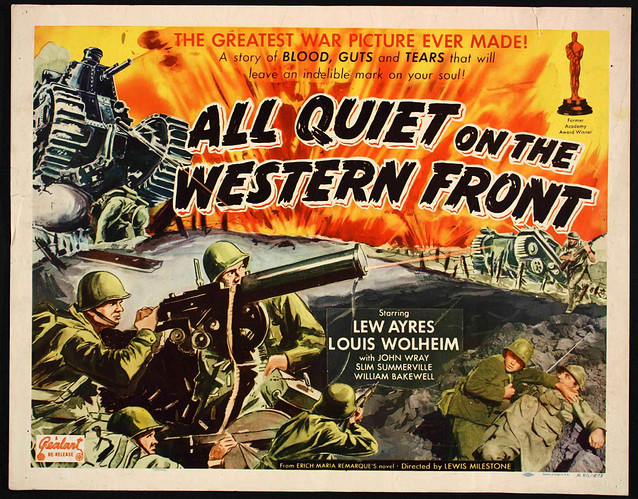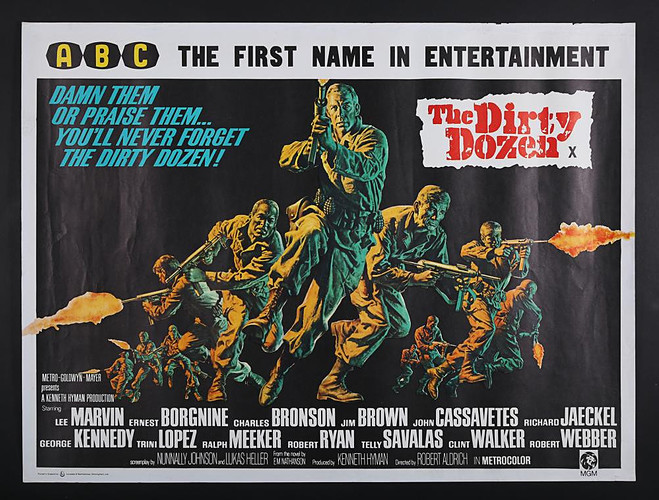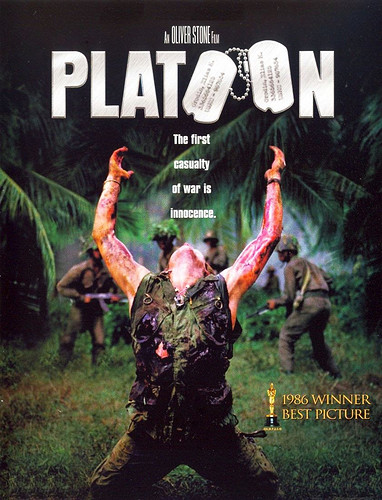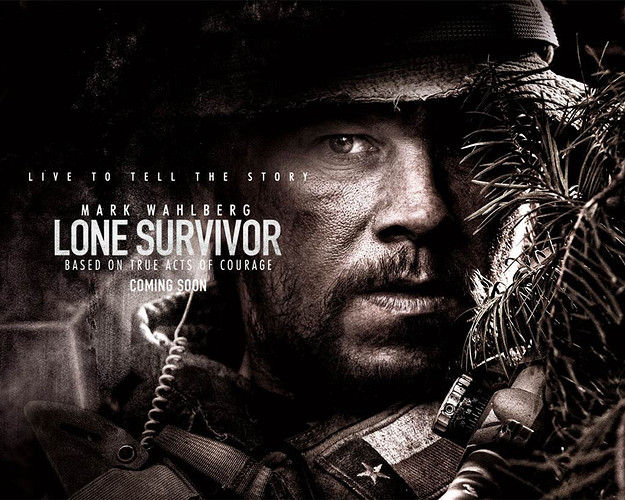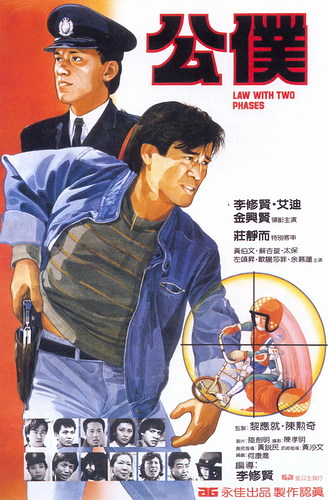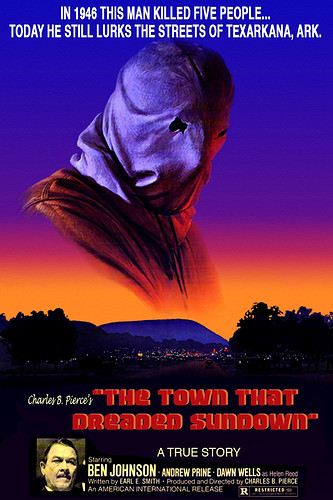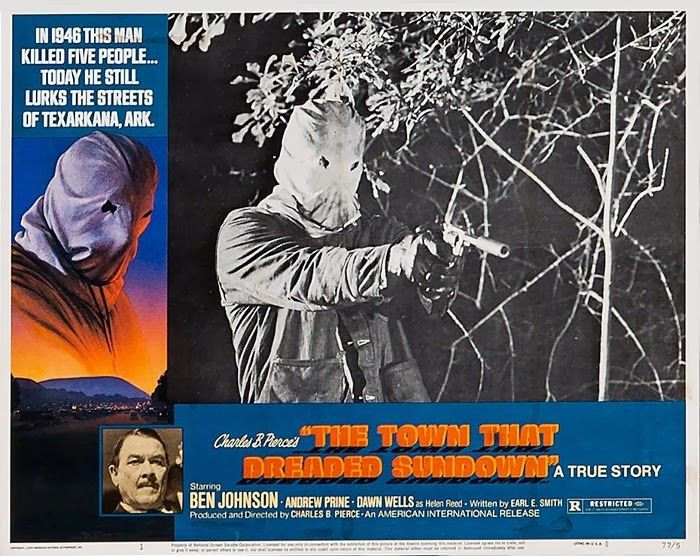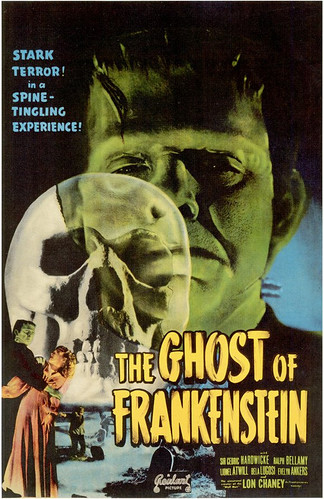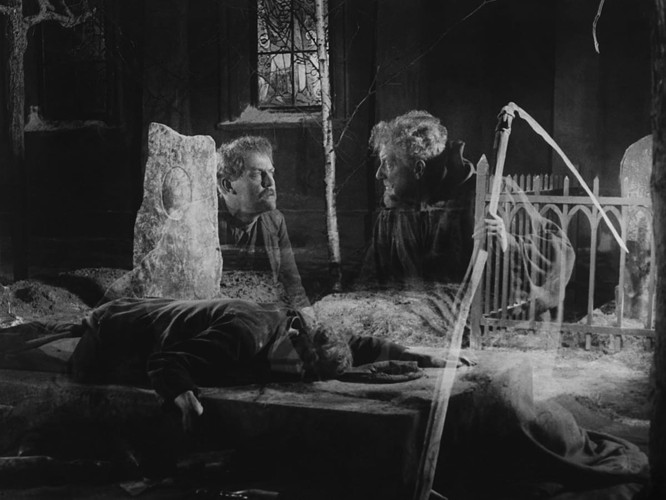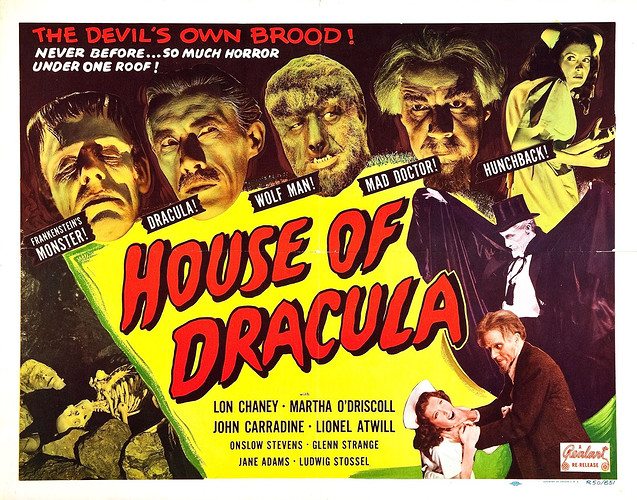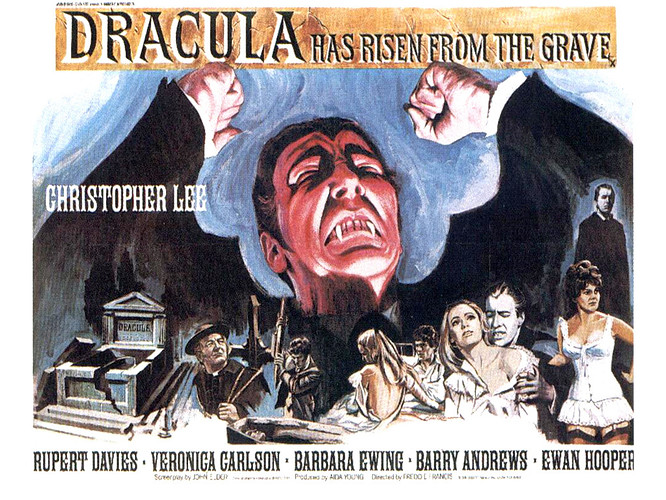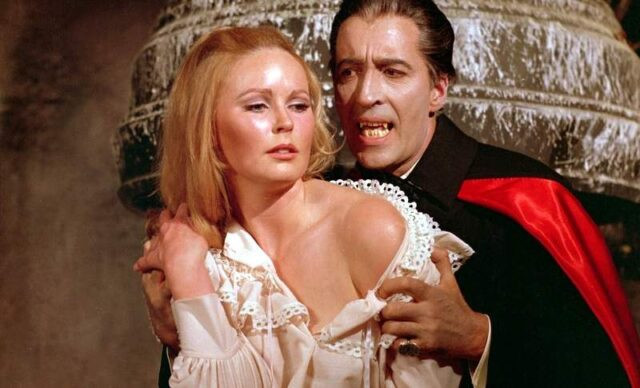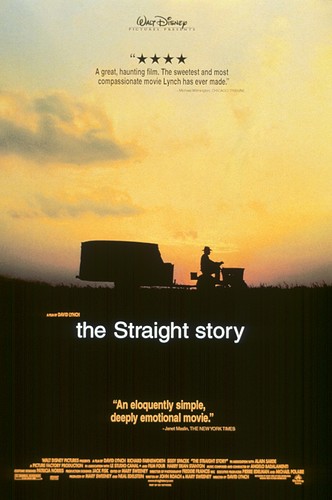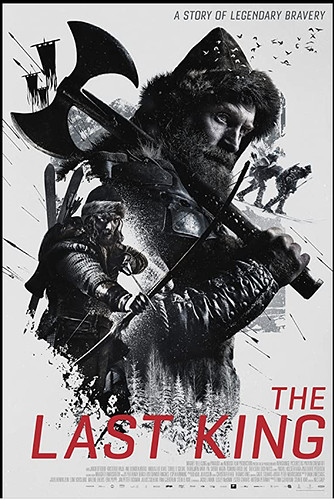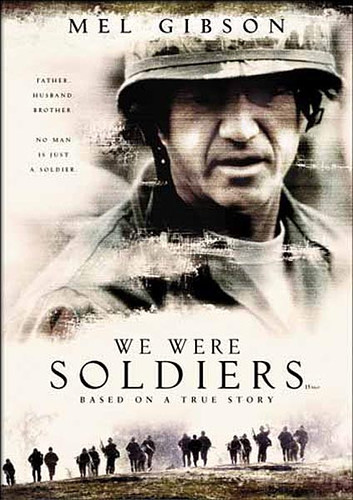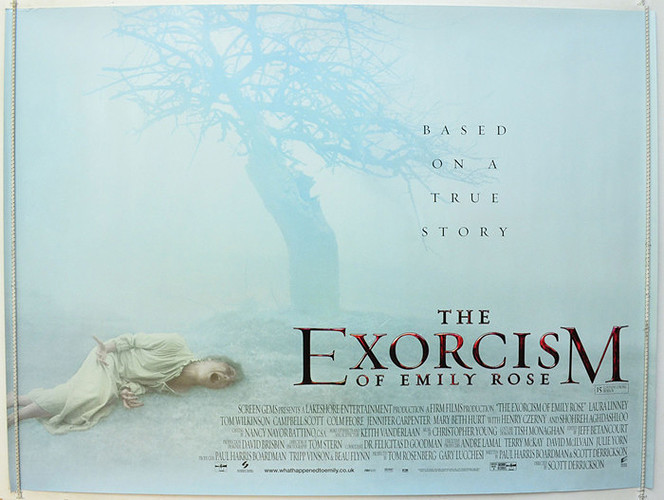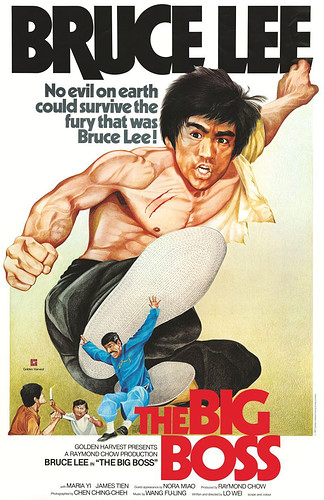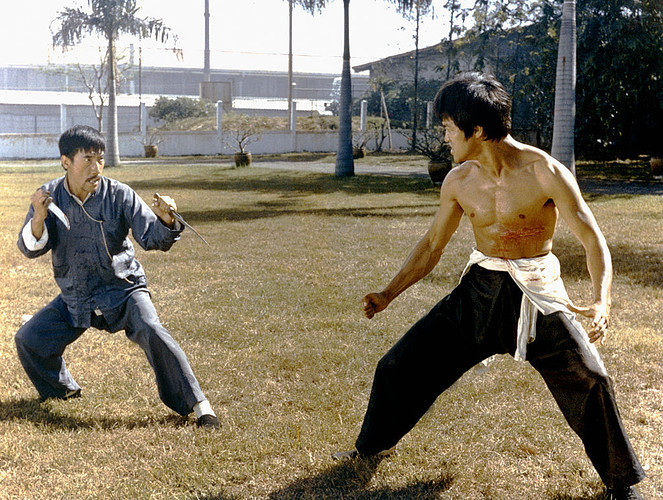I decided to do a double bill. I enjoyed the first film quite a bit since I haven’t watched it in a while. Unfortunately the second one just felt forced to me, so I won’t be rewatching it any time soon.
’The Phantom Carriage’ (1921)
To celebrate its 100th anniversary, an over-due viewing of this exemplary, Swedish silent master-piece…
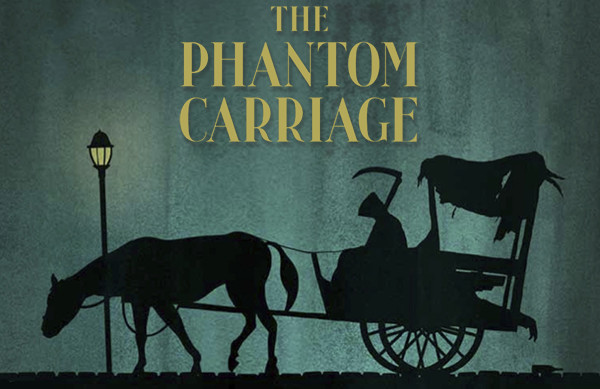
The Straight Story - one of my favourite David Lynch films with a wonderful performance by Richard Farnsworth.
This 80s science fiction/ horror cult classic stars John Heard, Daniel Stern, and Christopher Curry.
A big welcome to the site, Jacob. Great things to discover on here…
Thirst (1979) - Director: Rod Hardy - 5/10 - While there is an interesting concept at the core of the project, the issue is that the compelling premise is not bolstered by an accordingly compelling script. As a matter of fact, the central characters are hardly estabilshed and the narrative basically proceeds to develop the storyline without having elaborated on the protagonist in any meaningful way. As a consequence of this, the dramatic component of the tale feels rather arbitrary, superficial and insufficient. The content vacillates between being prepossessing and being downright ludicrous: on one hand, once the story gets going, the movie shows a lot of promise and boasts a munificent number of effective and memorable sequences. On the other hand, it likewise grows rather preposterous and needlessly cheesy with the resolution turning out quite trite and anticlimatic. All in all, this is a mixed bag with some sporadic flashes of inspiration and genuine imaginativeness, with that being said, don’t expect too much.
Phantasm (1979) - Director: Don Coscarelli - 6/10 - What the makes the movie so unique in my view is that it is highly reminiscent of the current-day “retro” filmmaking, which is either set in the 1980s or stylized in a way that’s indicative of the era; the “indie” sort of a narrative, the stripped down concept, some occult references as well as the simplicity of the plotline all attest to this specific style and aesthetics. Some segments of the motion picture were narrated in such a strikingly analogous way that I had a kind of a deja-vu. As a matter of fact, certain scenes could’ve been reused in one of the Panos Cosmatos flicks and few people would be able to spot it. Truth be told, it’s more interesting to talk about the endeavor in its relation to other works rather than to discuss the flick itself. That’s obviously not to say it’s particularly lame or short of thrills, on the contrary, most of the content is executed in a rather tasty fashion and exhibits precociously modern sensibilities; on top of that, there is a batch of scary moments that endow the action with buoyancy and briskness. Nevertheless, the thing is that once you’ve seen one of them, you’ve seen them all. In other words, I like it, but I don’t love it.
The Store (1983) (Doc) - Director: Frederick Wiseman - 5/10.
The Day After (1983) - Director: Nicholas Meyer - 7/10 - The film’s biggest asset proves to be the prosaic perspective exhibited in the portrayal of the nuclear cataclysm as seen by regular residents of Kansas City and its vicinity. Instead of occupying itself with needlessly grandiose aspirations, it approaches the theme with a degree of subtlety and restrainedness rarely found in movies of this sort and what makes the whole project even more compelling as well as memorable are fairly strong performances and pretty good writing focused on the realism of the situation as opposed to cheap thrills or meretricious sensationalism. The motion picture likewise includes one of the most spectacular depictions of a nuclear explosion, so it’s well worth viewing for this aspect alone. While some people might argue that some parts of the flick lack focus and that certain segments could’ve been executed in a superior way, this still constitutes an extremely moving and prepossessing post-apo entry that’s well worth checking out.
A Fire in the Sky (1978) - Director: Jerry Jameson - 6/10 - There is no disguising the fact that this is more of a soap opera than a full-blown sci-fi flick, nevertheless, most of it proves to be executed in a more prepossessing fashion and offers a lot more character development than other films of this sort. While some aspects of the portrayed action feel definitely outdated both in view of obsolete special effects and the old-fashioned tone of the screenplay, what the endeavor does capture right is the issue of communal responsibility and political ramifications of managing crisis situations; that coupled with its fairly strong characterizations as well as the leisurely, but assured plot development maintains viewer’s attention and make it all surprisingly enjoyable in the end. Richard Crenna gives a solid performance as always and so does the rest of the cast. Ultimately, all disparate components coalesce into a quite diverting and reasonably well crafted TV movie in the teeth of budgetary constraints and some sporadic flaws in the overall rendition.
Airport (1970) - Director: George Seaton - 7/10.
Pena de muerte (1974) - Director: Jorge Grau - 3/10 - The premise isn’t even all that bad, nevertheless, the principal issue stems from the fact that the way the whole concept is approached here happens to be agonizingly drab, trite and listless. The pedestrian writing and the trivially shallow, flabby characterization render the whole composition ludicrously lethargic and pointless, whereas the one-dimensionality of the central mystery compounds the said inertia and turns the already languid affair into an utterly somnolent and inexcusably predictable experience. Even though the movie is not without its assets such as the compelling performance by Fernando Rey, the moment the second half kicks in the whole enchilada devolves into a mire of cliches with nothing substantial to offer in the way of visual sophistication or scripting ingenuity. One readily knows what the final outcome is going to be, yet is still forced to watch the flick go through the motions. The idea could still very well work if it had been embellished by more fanciful screenwriting and more appealing aesthetic ornamentation. Regrettably, what we’re ultimately served with turns out to be excruciatingly tedious and as flat as a pancake.
Memories of Murder (1990) - Director: Robert Michael Lewis - 5/10 - There is no denying this is one of the cookie-cutter amnesia thrillers with plenty of the same cliches injected into the tout ensemble, with that being said, most of it is carried out in a sufficiently solid fashion, has fairly strong two leading actors at the center thereof and features the typically spacious early-1990s soundtrack with gelid, metallic whooshes and the likes; suffice to say, I enjoyed the movie quite a bit even though it kind of drags in the middle and the resolution eventually doesn’t really bother to tie up all the loose ends and account for the puzzle relating to its heroine’s past. Nonetheless, I found the likability of the two leads as well as the adequately assured momentum of the narrative to be enough to compensate for the admittedly average DTV content, I am aware of the fact that it is merely a matter of taste though. I’ve gotta say I’m beginning to recognize certain road intersections used in other TV works of this kind, which is a clear sign I have to move on to other niches, that’s kind of ridiculous in and of itself.
Delta Heat (1992) - Director: Michael Fischa - 3/10 - One would expect a lot more unorthodox elements or quirky references to the Lousianian culture, legitimizing the unusual choice of scenery and setting, nevertheless, what the movie ultimately delivers is a heady amalgamation of exasperatingly tiresome cliches and cringe-worthy plot apparatuses, which results in something both extremely contrived and bromidic. The issue dwells in the fact that the motion picture simply tries too hard to be funny and tongue-in-cheek whilst offering virtually nothing out of the ordinary story-wise. The storyline is basically a recycled buddy cop formula with not enough substance and elaboration to make it stick and the only way in which the flick endeavors to diversify the whole schmear is through a number of crass gimmicks, which ultimately do more to derail the flow of the plotline than to introduce anything of interest into the equation. To add insult to injury, the manner in which the cogs of the narrative machinery move feels remarkably forced and choppy, so the film even fails to follow the overall buddy cop schema in a passable fashion. Some people might find more of interest here, but I can’t say I enjoyed any of this fluff to any significant degree.
Sette orchidee macchiate di rosso (1972) - Director: Umberto Lenzi - 7/10 - While the giallo is probably one of the most straightforward and streamlined whodunit tales the genres has to offer, its unpretentious execution, the invariably firm and solid scriptwriting, the terrific score by Ortolani as well as the sufficiently assured narrative all come to coalesce into an exceedingly enjoyable and self-contained flick that’s a lot more accomplished and compelling than one would expect. The Lenzi’s direction predictably relies on his knack for fast-paced, action-themed storytelling, which results in the steady, perky flow of the narration; this means the suspense is not as incisive as in the case of more prominent genre entries, nevertheless, what it lacks in terms of building tension is duly compensated by the impetus of its sprightly narrative. Last but not least, the wondrously mellow soundtrack by Ortolani additionally contributes to the already gratifying ensemble with every string section and every funky riff displaying Ortolani’s brilliant composing artistry. Long story short, this one is great fun.
Nightmare in the Daylight (1992) - Director: Lou Antonio - 7/10 - Even though the film doesn’t fundamentally differ from other psychological thrillers about stalkers, what makes it compelling and fairly gripping to watch is the terrific performance by Christopher Reeve; the way he walks, talks and looks throughout the whole affair makes him look like a total nutcase, which is a testament to his prodigious acting capabilities. Other than that, the execution by Lou Antonio is very sleek and straightforward, doesn’t get in the way of the story, keeps things simple and thus, endows the motion picture with the kind of narrative efficacy and immediacy this sort of work calls for. The simplicity and to-the-point approach render the composition very taut and firm and that in conjunction with Reeve’s extraordinarily energetic performance makes for a very effective and highly watchable viewing. Although the final twist might not come as a surprise in the end, it does resolve the story in a rather gracious manner and makes sense in the grand scheme of things. As far as the early-1990s, late-night TV flicks are concerned, this is top-shelf stuff, very enjoyable.
The Nightman (1992) - Director: Charles Haid - 4/10 - An odd neonoir with some interesting ideas and initially a highly caustic, sarcastic story at the center of it; alas, little is done with the acerbic premise and what ultimately comes to stultify the whole offering is that it turns from a fairly nasty tale into a schmaltzy, two-bit time-waster. The mush is exacerbated by unconvincing, cheap theatrics of its main cast as well as the superficiality of its storyline. The motion picture attempts to conceal its overarching triviality and paucity of originality through the deliberate, non-linear narrative, which doesn’t really introduce much into the equation and fails to elaborate on its characters in any meaningful way. With that being said, the movie is not without its upsides, as the visual presentation boasts a fairly gracious appearance with some appealing shots inserted here and there; the issue is that this pleasing look is deployed to little purpose and there are no substantial characters or events to fill that space and eventually, to give meaning to this inconsequential piffle of a flick.
La morte scende leggera (1972) - Director: Leopoldo Savona - 6/10 - An utterly bizarre and enjoyably ludicrous slice of giallo from Leopoldo Savona. What makes this a lot more adventurous than other genre entries is that it primarily occupies itself with conjuring up the discombobulating atmosphere at the expense of overall plot coherency, which endows the offering with a distinctly oneiric flavor. Savona essentially throws everything against the wall in the hope that some of it will stick and basically succeeds in the end. There are plenty of puzzling moments and a general sense of confusion, with that being said, the narrative is swift enough to brush these shortcomings aside, whereas the location-bound nature of the story keeps the storyline taut enough for it to make more or less sense narration-wise. The resolution kind of proves to be nonsensical and preposterous, but it also reveals the underlying purpose of the motion picture, which is to take the audience aback and to evoke a state of psychological flux. In order words, you might enjoy this providing that you simply sit back and enjoy the ride, not expecting anything along the lines of a sophisticated whodunit mystery with a rounded, sound resolution.
Una farfalla con le ali insanguinate (1971) - Director: Duccio Tessari - 8/10 - Probably one of the most structurally venturesome giallo flicks I’ve come across; the motion picture initiates with a relatively insensitive, scandalmongering sort of approach, which is evocative of the perspective usually adopted by newspapers and yellow journalists with fiscal intentions in mind. This deliberately sensationalistic and shallow outlook is then contrasted with the more personal and character-driven portion of the story, which is intended to furnish an additional insight into the motivations of main characters and to elucidate the reasons behind the killings. The said section unearths the underlying crisis of the Italian family unit as well as the moral decay lurking deep down in the society, which in turn provides ground for the climax. This two-fold approach towards the narrative is enabled by virtue of the sharp, snappy editing, which is further bolstered and adorned with the tasteful visual rendition. Albeit not one of the most emotionally resonant works within the genre, this one still constitutes a rather impressive achievement if only for the aforesaid technical merits.
Paura nella città dei morti viventi (1980) - Director: Lucio Fulci - 4/10 - Despite some compelling visuals and sporadic inspiration exhibited in a couple of scenes, the fact of the matter is that the effort is simply preposterous even by Fulci’s standards. This wouldn’t be as much of a problem if the depicted imagery had been arranged according to some palpable blueprint so as to arrive at a specific atmosphere and to evoke a specific emotional response. Regrettably, the tone of the flick is internally incongruous and the movie vacillates between being disgusting and being extremely inane on too many occasions, solely supplying a grubby selection of pitiably pointless gore sequences in the end. The splatter effects look very good and admittedly, made my stomach churn a couple of times, nevertheless, if you expect anything in the way of a coherent storyline, a focused narrative and a general sense of purpose, you might as well skip this one and start looking elsewhere. Some people might cherish the offering more if they happen to be gorehounds, everybody else should probably approach this movie with caution though.
Out of the Rain (1991) - Director: Gary Winick - 7/10 - While the film doesn’t dramatically differ from other come-back-and-find-out-things-are-not-the-way-they-used-to-be movies, what sets it apart from other ventures of this sort is its graceful pacing, rich characterization and rather redolent noir atmosphere. The work unfolds in a very deliberate, gradual fashion, which allows the story to breathe, substantiating the setting of the story, endowing the tone of the drama with a very melancholic quality as well as elaborating on its main characters in a poignant manner. Even though the general plotline grows rather generic towards the end and fails to follow the excellent former portion of the tale with a similarly involving climax, the resolution of the plot makes sense at the end of the day and is suitable for this kind of modest narrative framework. Notwithstanding its faults, the motion picture still constitutes one of the more compelling efforts of this kind, outshining plenty of more well-known genre entries, especially as far as the general execution goes.
City of Shadows (1987) - Director: David Mitchell - 4/10 - Truth be told, the rough premise of this rather obscure sci-fi neonoir/postapo hybrid ain’t bad at all and proves to be kind of intriguing in its own right, nonetheless, the principal issue predictably dwells in the final rendition; in other words, everything here is a little undercooked, somewhat shallow and incoherent: the direction is tentative and visually unremarkable, the writing feels cursory and insufficient, the narrative lacks finesse and focus, there is only like a handful of locations used throughout the storyline, there is little character elaboration involved and most of it basically boils down to progressing from one action scene to another. None of these flaws would be that pronounced in isolation, but together they come to enervate the composition in a rather acute way. With all that being said, what redeems the flick to some extent is its stiflingly bleak atmosphere. Essentially, almost everybody wandering around this post-apocalyptic urban wasteland is either a looter, a rapist, a sadistic murderer or a combination of all three, which makes for an unusually tenebrous viewing experience. Hardly anything essential, but possibly worth a look, that is if you’re willing to overlook its erraticism and incohesiveness.
A Climate for Killing (1991) - Director: J.S. Cardone - 6/10 - While some people may regard it as out-of-focus and somewhat flaccid, I would say it’s more along the lines of a deliberate neonoir slowburner with more story under the hood than in the case of other low-budgeted entries of this kind. The fact of the matter is that it is as much of a tightly-woven drama with thoroughly developed characters as it is a whodunit mystery with some political undertones to boot. The contrast between the legalistic persona of the federal agent played by Steven Bauer as well as the small time sheriff acted by John Beck works extremely well and offers a great point of departure for an interesting clash of disparate work ethics, attitudes and temperaments, which is then used to good effect and capitalized on with some fairly well-penned plot progression and overall story elaboration. Truth be told, the final exposition proves to be a little awkward and the mystery component of the storyline can be guessed like halfway through, nevertheless, this is still a prepossessing neonoir drama that benefits greatly from its rich atmosphere, graceful pacing, good acting and some very decent writing.
Deceptions (1990) - Director: Ruben Preuss - 4/10 → 5/10 - A re-watch. My guilty pleasure.
Total Exposure (1991) - Director: John Quinn - 3/10 - Although the flick looks good enough on paper, the issue dwells in that things begin to fall apart the instant everything is put together on the celluloid. Everything is a little misaligned in the sense that characters are bland and vapid, a lot of scenes prove either redundant or are cut too short, whereas the direction turns out so pedestrian and unremarkable as to embalm the project irrevocably. The whole enchilada moves at too leisurely a pace to sustain story’s momentum, as a consequence of which the plotline lacks buoyancy to endow consecutive twists and turns with much needed narrative vibrancy and freshness. The way the entire tale unfolds feels exceedingly threadbare and this overarching somnolence only comes to compound the internal lethargy of this inexcusably thrill-less thriller. That being said, in its defense, the final product doesn’t constitute a particularly painful experience either, as there are also some decent ideas thrown in and the motion picture intermittently shows a moderate degree of competence, so the endeavor still manages to become another barely passable, forgettable piece of VHS trash.
Shadowchaser (1992) - Director: John Eyres - 4/10 - While there is no disguising the fact that the premise is on the inane side and so is the rest of the plot to be perfectly honest, what compensates for the general lack of coherency and writing frivolity is the overall tongue-in-cheek tone. No matter how juvenile and trashy the humor might be, the jokes happen to be a lot funnier and enjoyable than in the case of other silly actioners of this sort, which alleviates the tedium of sitting through the hackneyed action formula and the never-ending string of unbelievably far-fetched turnabouts. Truth be told, the flick kind of runs out of steam and ideas towards the end, at which point it dispenses with its cheesy witticisms, stops deviating from its somnolently rigid structure and proceeds to spew the usual action diarrhea left and right; that being said, the rest of the movie ain’t that bad for a cheap, crappy piece of action shlock and turns out more gratifying than expected. Recommended if you are in the mood for a crappy, low-budgeted piece of sci-fi trash.
The Zone (1995) - Director: Barry Zetlin - 1/10 - The fact that the story is completely devoid of originality of any kind and that probably like half of the budget was spent on hiring Robert Davi, Alexander Godunov and Ben Gazzara means we are dealing with an exceptionally scurvy material here. The idea of situating the action in a post-Soviet country endows the exterior scenes with a degree of novelty and breathes some life into the otherwise bland composition, however, the director doesn’t even attempt to build upon the skeletal actioner formula and instead, chooses to fill the storyline with a succession of flavorless action sequences executed in a predictably pedestrian fashion with every step of the way being as foreseeable as tomorrow’s sunrise. The moment the second half kicks in, the viewer is subjected to the extraordinarily slipshod climax with Robert Davi basically strolling around a factory, which is intended to represent some kind of high security facility despite having like a handful of guards and a laughable surveillance system, and playing around with a toy car to plant a bomb. Mistaking longueurs for tension and slow motion for dynamism, the director seems content with pelting the audience with this uniquely disagreeable gamut of cliches, which contributes nothing apart from insulting one’s intelligence and making the final product about as tight as dog’s vomit. Avoid.
The Groundstar Conspiracy (1972) - Director: Lamont Johnson - 7/10 - While the movie conspicuously suffers from erratic pacing as well as sporadically choppy editing, it also possesses a kind of immediacy which makes the work very energetic and quite gripping to watch. The central mystery is very well handled and renders protagonist’s dilemma pretty relatable, whereas the frigid, mesmerizingly aloof performance by George Peppard further enhances the paranoid atmosphere of this rather tasteful and extremely enjoyable conspiracy yarn. Last but not least, the resolution ties up all the loose ends in a rather graceful fashion and eventually, orders the perplexing tangle of the narrative in an effective way. The Parallax View it ain’t, but it most certainly constitutes an adequately diverting and absorbing 1970s conspiracy thriller even if it doesn’t quite manage to hold a candle to the most preeminent genre examples, stumbling here and there along the way. In other words, what it lacks in terms of technical dexterity is compensated by the immensely gratifying flow of the narration, good acting and the overall cinematic fun.
Colossus: The Forbin Project (1970) - Director: Joseph Sargent - 6/10.
The Chain Reaction (1980) - Director: Ian Barry - 4/10 - For a movie that’s supposed to be exploitative, fast-paced and all that, it turns out to be a lot more tedious and gratuitously protracted than one would expect. The overarching issue dwells in the fact that upon laying ground for the plot to unravel, the motion picture doesn’t really go anywhere and basically fails to put the admittedly decent premise to good use; it subsequently begins to drag in the middle and proceeds to occupy itself with gratuitous detours, filling the running time with occurrences that do not contribute to any character development, which in turn causes the overall composition to stagnate and makes all characters as flat as a pancake. One can definitely discern George Miller’s expertise in the way stunts are handled, but action sequences are surprisingly few and far between and don’t really succeed in dispelling the prevailing tedium. All in all, the story feels as though it had been written by somebody with a general understanding of screenwriting basics, but without a deeper comprehension of what makes great scripts great in the first place. It’s trite, but worst of all, it’s plain boring.
From the Terrace (1960) - Director: Mark Robson - 4/10.
The Dark Crystal (1982) - Directors: Jim Henson, Frank Oz - 8/10.
Oscar (1991) - Director: John Landis - 4/10.
Midnight Heat (1995) - Director: Harvey Frost - 3/10 - The motion picture is not without its upsides such as the troubled relationship between the protagonist and the police officer investigating the murder case, however, there are several rather major issues debilitating the film in question. First and foremost, Tim Matheson is too goddamn old to play the role of a thirty-something-year-old football player, given that he looks like a forty or a fifty year old man here. I get that the guy is suppposed to be past his prime and strung out, but it’s a little too much. Secondly, Mimi Craven’s acting skills do not introduce much into the equation to put it mildly and her “performing” mostly boils down to her appearances in gratuitous fucking scenes, which further sap and protract the overall composition beyond the extent of what fast-forwarding could remedy; this is inexcusable in view of the potential complexity of her part, which is left unexplored both in the writing and acting department. Last but not least, the main hero is too much of a knucklehead and a loser to figure out what is going on around him and ultimately, he fails to change the turn of events to any significant degree, which makes it hard to root for him. I have seen worse, but it doesn’t really say much, does it.
Il generale Della Rovere (1959) - Director: Roberto Rossellini - 6/10.
Never seen We Were Soldiers - it just seems to have fallen through the cracks in my “to watch” pile - but The Exorcism of Emily Rose is excellent imo.
Agree Both Excellent Movies
The Exorcism of Emily Rose is one of my Favorite Horror Movies
We did a 4 movie horror marathon yesterday.
Wrong Turn 2-Decent sequel. Good gore and Henry Rollins was great as one of the leads.
Wrong Turn 3-OK sequel. Good gore but a dumb as hell twist near the end.
Wrong Turn 4-A Prequel. It has good gore and that is it.
Trophy Heads-Full Moon recently made film where a hardcore fan starts recreating his favorite death scenes with Scream Queens.
- McCarey: Duck Soup 10/10
- Baird: Stan & Ollie 7/10
- Wenders: Until the End of the World 7/10
- Sturges: The Great Escape 8/10
- Greengrass: News of the World 8/10
- Huunonen: Karvat 6/10
- Karpo (doc) 7/10
- Polanski: The Tenant 9/10
- Franco: Down Town 4/10
- Fulci: Massacre Time 7/10
A special 50th Anniversary viewing of ‘The Big Boss’ (1971) - the film that catapulted the legendary Bruce Lee to stardom…
One of the more entertaining films I have seen in recent months (not necessarily the best) is “Ready or Not”. It’s like a super shallow white-people remake of the excellent and mindblowing “Get out” but it can stand on its own and makes for some decent thrills, frills, gore and fun 
That’s kinda (well actually not kinda it actually is) a racist statement
As a site admin shouldn’t you know better.
I’m not trying to start any trouble
(I came to this board for my love of spaghetti Westerns and to get away from politics that seem to infest every other form of social media
But its annoying that white people are the only people that can be disparaged for their color and no one says a word
If you wrote “its a super shallow black-people remake”
There would be no doubt people would consider that racist
Just my two cents
Yeah you have a point there. I should’ve phrased this differently, no matter the politics. I certainly didn’t mean it in a racist kind of way, but it is very reminiscent of Get Out, albeit transplanted into a… well… world of the ultra rich, (WASPy is probably also not PC) kind of world ![]()
But thanks for pointing out my lack of sensitivity there.
